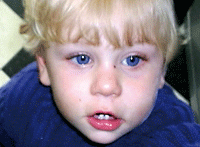
Social workers have not learned the lessons from the Baby P case because government guidance prevents them from being more authoritative with parents and families, the author of the second serious case review on the toddler’s death has told Community Care.
Alan Jones said the biggest lesson to be learned from the full publication of the Baby P SCRs, and from almost every other SCR he had ever written or studied, was the need for social workers to challenge parents more.
“Without being cynical I believe we will not, and have not, learned from the Baby P case,” he said. “There has been no suggestion by government or service leaders that they should place more importance on this learning in the provision of our child protection services.
“Without a change to authoritative practice by all protection agencies we will not prevent the continuing catalogue of avoidable non-accidental deaths.”
He said current government guidance put more importance on social workers supporting families and parents to try and keep the children at home if at all possible.
Sue Woolmore, independent social work trainer and consultant, said this view was common throughout the sector.
“The culture within child protection has become so driven by the fear of exposure for incompetence or poor practice, practitioners and their managers have become far more preoccupied with ticking the right boxes and staying close to guidelines.
“The problem is that they’ve done that at the expense of their own professional judgement. As a result, what we’ve been doing with serious case reviews is identifying lessons within child protection, but we haven’t been able to embed them. The system isn’t flexible enough.”
Woolmore said the 10-day time limit for initial assessments was one example of well-intentioned guidance that often led to poor practice.
“When you have to get that assessment done in 10 working days, how are you ever going to penetrate all the layers of complexity within a household like Baby P’s? Of course you’re going to have to rely on what the adults tell you, and that’s one of the main failings pointed out about this case.”
However, Jenny Myers, head of safeguarding at Barnardo’s, said that even if the guidance were changed, social workers also needed to be properly trained, supported and competent to become more authoritative.
“Workers need to be able to use professional judgement and challenge families. However flexible your guidance, it won’t make a huge amount of difference unless workers are up to that.”
What do you think? Join the debate on CareSpace
Keep up to date with the latest developments in social care. Sign up to our daily and weekly emails
Related articles:
Munro review: social workers fail children due to focus on rules


 Bournemouth, Christchurch and Poole
Bournemouth, Christchurch and Poole  Hampshire County Council
Hampshire County Council  Lincolnshire County Council
Lincolnshire County Council  Norfolk County Council
Norfolk County Council  Northamptonshire Children’s Trust
Northamptonshire Children’s Trust  South Gloucestershire Council
South Gloucestershire Council  Wiltshire Council
Wiltshire Council  Wokingham Borough Council
Wokingham Borough Council  Children and young people with SEND are ‘valued and prioritised’ in Wiltshire, find inspectors
Children and young people with SEND are ‘valued and prioritised’ in Wiltshire, find inspectors  How specialist refugee teams benefit young people and social workers
How specialist refugee teams benefit young people and social workers  Podcast: returning to social work after becoming a first-time parent
Podcast: returning to social work after becoming a first-time parent  Podcast: would you work for an inadequate-rated service?
Podcast: would you work for an inadequate-rated service?  Family help: one local authority’s experience of the model
Family help: one local authority’s experience of the model  Workforce Insights – showcasing a selection of the sector’s top recruiters
Workforce Insights – showcasing a selection of the sector’s top recruiters 

 Facebook
Facebook X
X LinkedIn
LinkedIn Instagram
Instagram
Comments are closed.